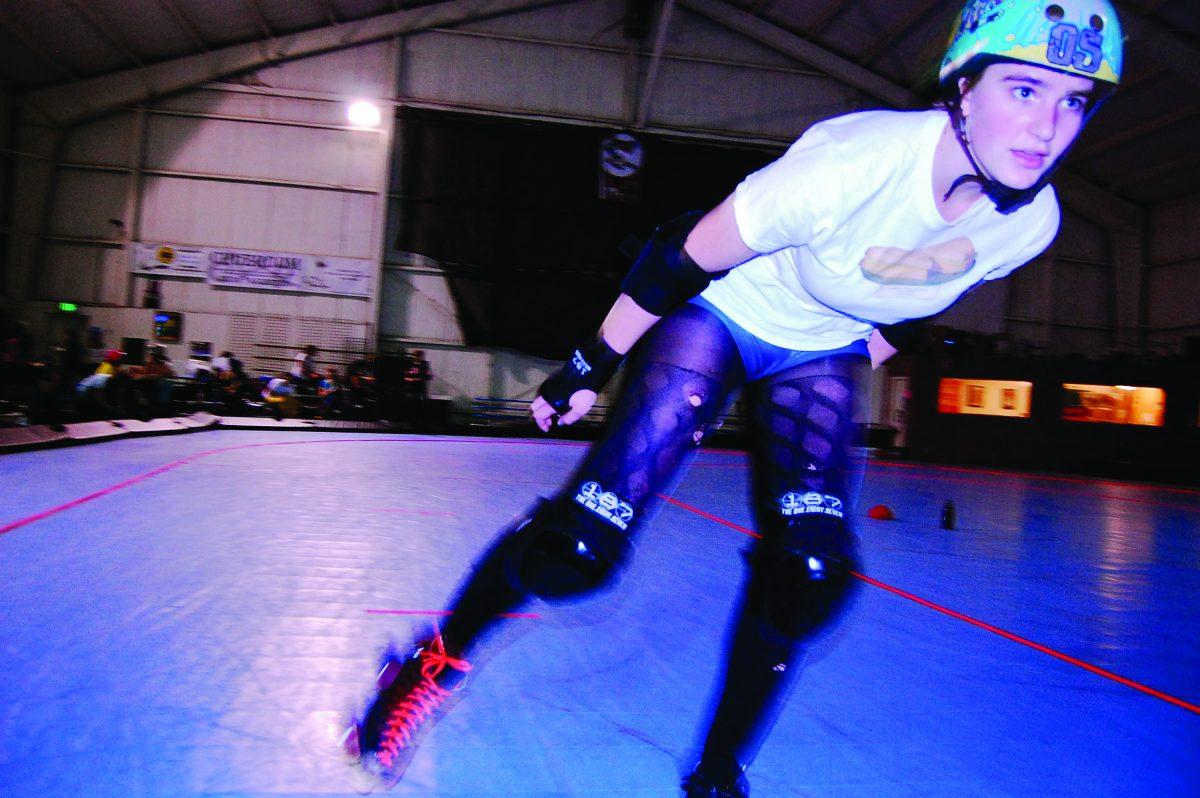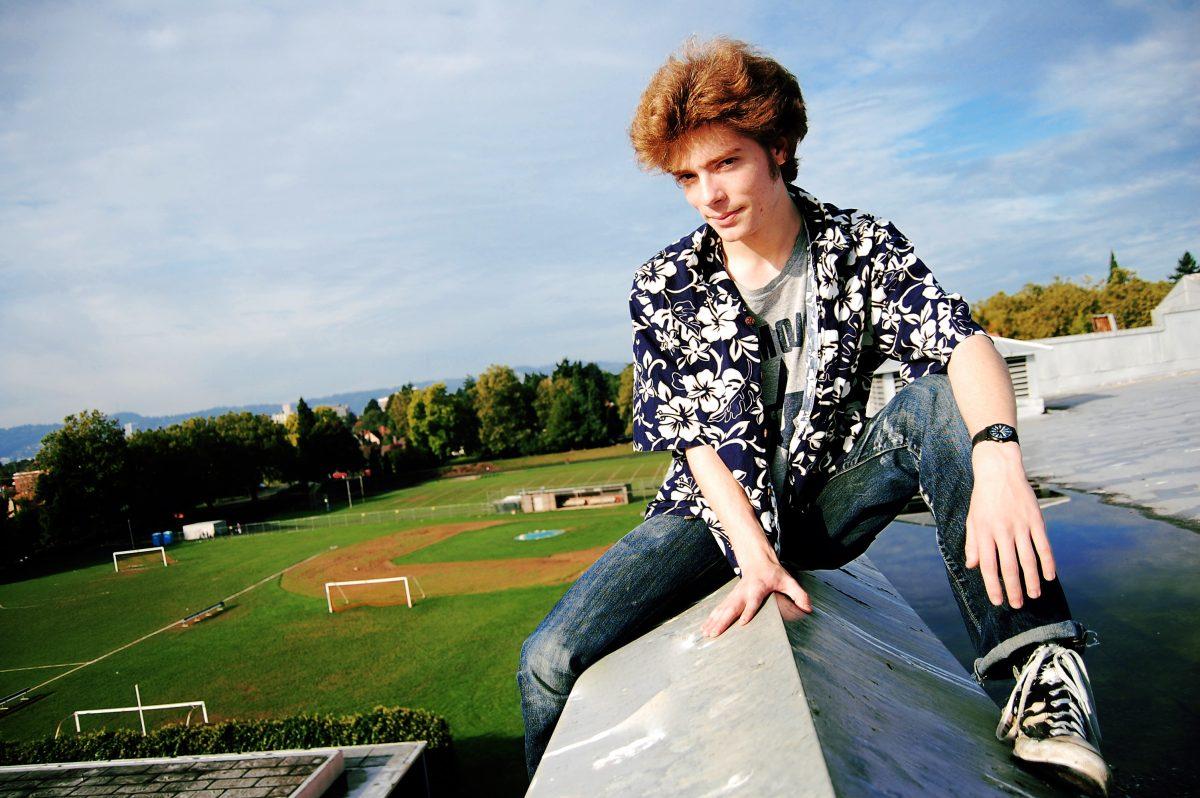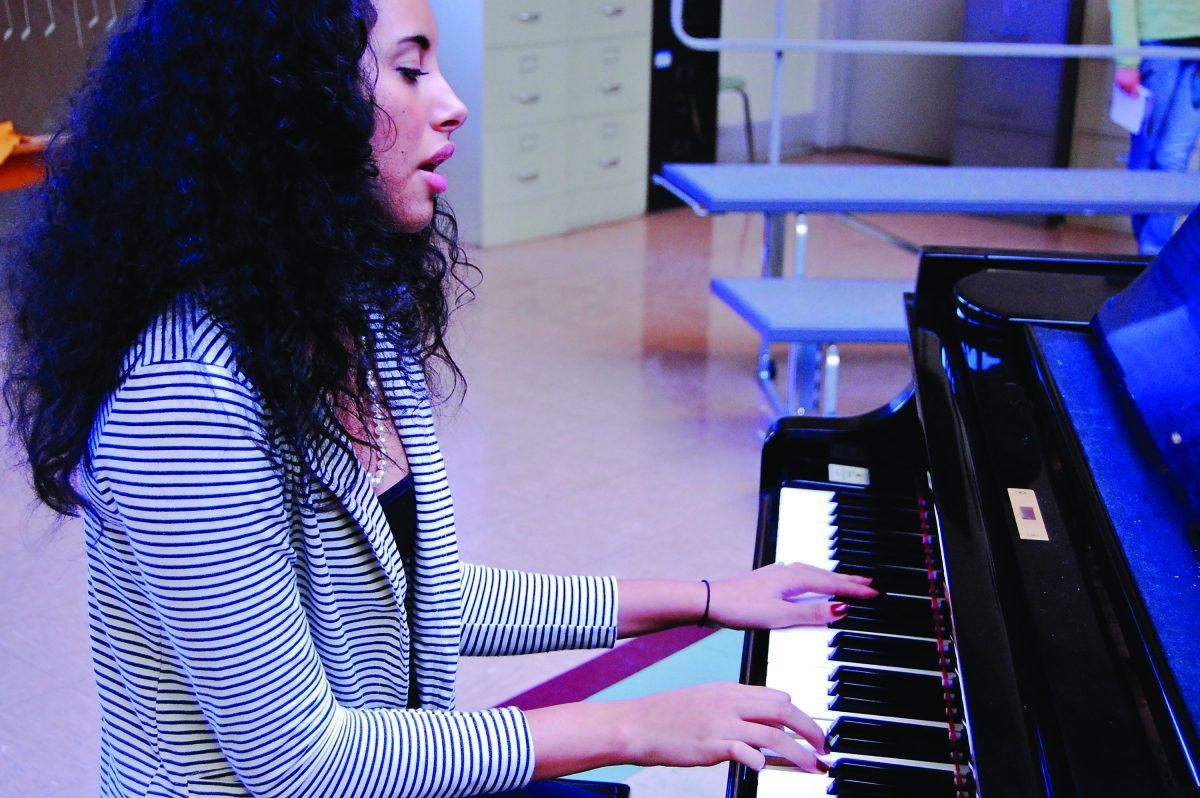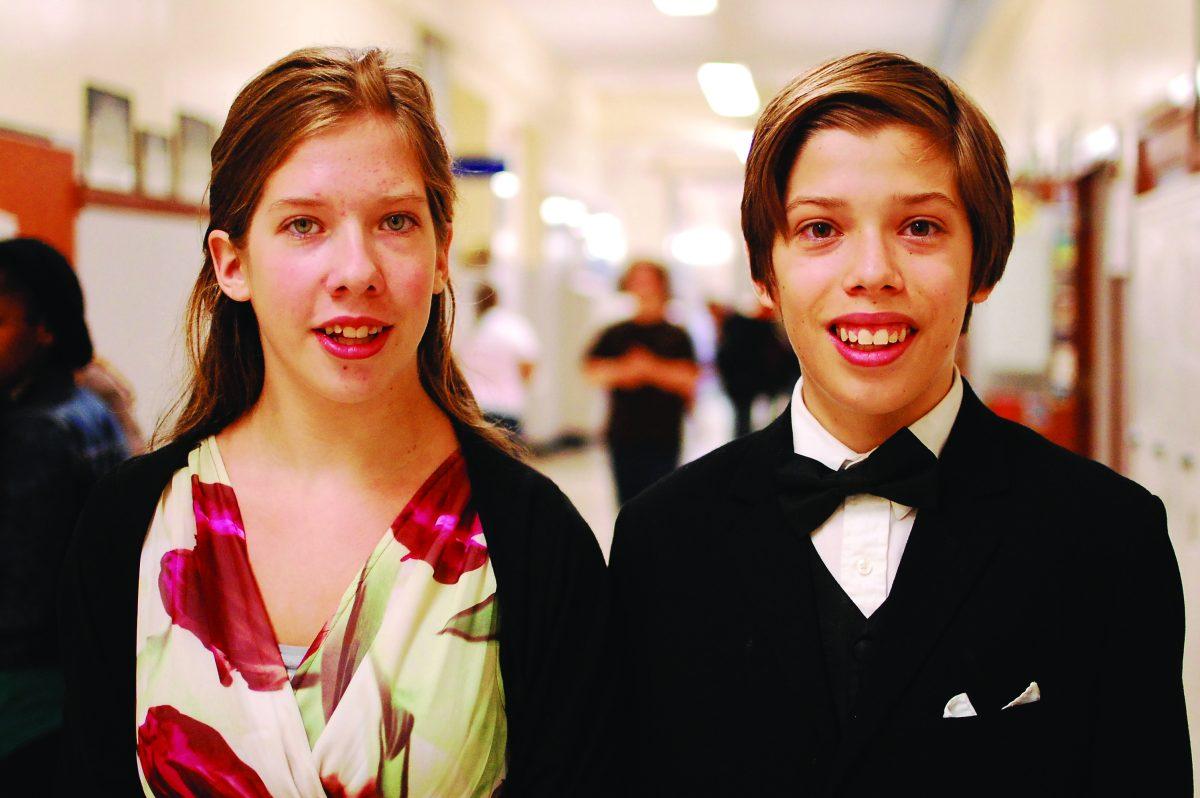Bridget Fahey crouches, head bowed. Loud music and screaming fans roar in the background. Every muscle in her body is tensed, anticipating. A whistle blows and she springs to action. Her goal is to make it through the pack of eight girls about 30 feet away.
Large black stars on the side of her helmet mark Fahey as the jammer—the fastest skater. She scores points by weaving through her opponents on the track, often knocking them to the ground in the process.
It’s Saturday night roller derby, a contact sport with all the brutality of football—on wheels. Fahey, a junior at Grant High School, is a member of the Rose City Rosebuds, a team with about 80 skaters
The Rosebuds, made up of teens from eighth grade through high school, are broken up into four teams. They skate in a junior league of the Rose City Rollers, the adult professional team that travels across the country.
On this day, Fahey’s junior team – the Death Scar Derby Dolls – are in a doubleheader against the Rainbow Bites. With her striking height, ferocious speed and ability to play any position Fahey dominates the track. This year she was made captain of the Rosebuds.
Roller derby for Fahey started in eighth grade when Fahey was a terrified kid who couldn’t skate. She embraced the sport and it quickly turned into her passion.
“It’s a big part of her identity right now,” her mom, Molly Long says. “It’s her friends, her social life. She’s really found something she loves.”
Fahey moved to Portland with her mom when she was 8, a change that meant leaving her dad behind in Boise, Idaho. Independent and solitary as a young child, Fahey’s imagination kept her entertained. She loved reading and spending time building fairy houses.
Long remembers Fahey being a bit “hard to draw out” – a tendency that’s still present in her solitary nature.

Even though she played soccer for five years, Fahey’s experience with the game left her feeling isolated from the rest of the team. “It wasn’t a family,” she says, remembering feeling on the outskirts. She gave it up when the team devolved into cliques. For a year, she gave up on sports altogether.
It was 2008 when Anneleis Cowan, one of her friends, dragged her to a season opener of roller derby. Fahey was enthralled with the game. Without much knowledge about roller derby, she began attending practices. “No one passed judgment for who you were, and that was really refreshing coming from a middle school soccer team,” she recalls.
Cowan feels the same way. “There’s really nothing like it. Derby is really the first place you go to and people are instantly nice to you and accept you unconditionally,” she says.
At her first practice, Fahey sprained her ankle. It made her a little nervous but she came back from the injury and kept at it.
It took her a few months to develop confidence in her skating. Coming from soccer, she struggled to throw herself into something entirely different. “When people are good at something, they tend to stick with that one thing. I was terrified of embarrassing myself,” she says now.
But at 5-foot-10, Fahey turned out to be a natural. Today, her mere presence on the track is unmatched. She combines ferocity with grace, something her teammate, Celeste Chow describes as “Amazonian.”
When Fahey isn’t playing roller derby, she’s thinking about it, talking about it or watching it online. As Cowan says: “We all play roller derby. Bridget eats roller derby.”
Take one look at her room and you’ll see why. Her walls are smattered with posters of skating teams, some signed by her favorite players. Mixed in with pictures of Led Zeppelin, the Beatles and Johnny Cash are images of the Tampa Bay Derby Darlins.
As the team captain, Fahey has tasks such as attending coaches meetings, monitoring attendance and organizing team bonding. She represents the team and acts as an example for the younger, less experienced skaters. Fahey is humble and doesn’t want to admit to being a role model.
Her mom gushes when describing her daughter’s role on the team. “Bridget has risen to the occasion,” Long says. “She has shown a new level of maturity and she has really been a leader. She’s good at it and the girls really look up to her.”
Her attentive and determined nature on the track sets Fahey apart from the rest of the players. As they warm up, the girls form a clump and practice skills amidst chatter and laughter. Fahey is separate from the group, her head clearly in the game about to unfold. She prefers warming up alone – or with Cowan who helps keep her focused.
“The moments before we start, I’m really just trying to keep my mind clear,” Fahey says. “I play best in derby when I’m really focused.”
Fahey says she never uses derby as an outlet for anger; when you bring anger into the game you just get emotional and sloppy.
Fahey doesn’t just play, she’s a student of the game. She interacts with some of the adult Rose City Rollers. Her favorite players go by names like Scald Eagle and DeRanged. “They have similar body types to me,” she says. “I kind of watch how they skate and see how they use their body in different situations.”
Each junior roller derby player also gets paired with an adult “derby mom,” a player on the adult team who serves as a mentor. Fahey’s derby mom goes by the name Mick Swagger.
“I see them as how I want to be in a few years,” Fahey says.
After high school, she hopes to make Wheels of Justice, the Portland team that travels around the country to play. But whatever she ends up doing she doesn’t want to stop skating.
Fahey’s friends talk about how roller derby has given them more confidence in themselves. When you put on skates, your personality changes. You become more bold, they say.
When Fahey says that she can’t relate to that idea, her friend Chow chimes in: “You’re already confident, you’re Amazonian on skates.”

































